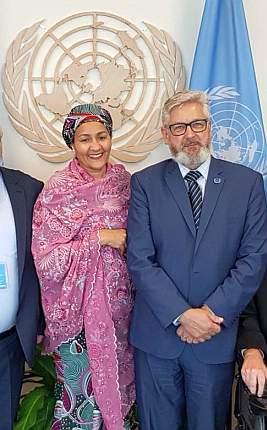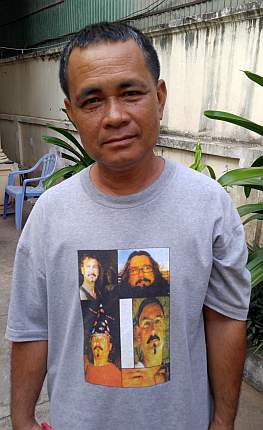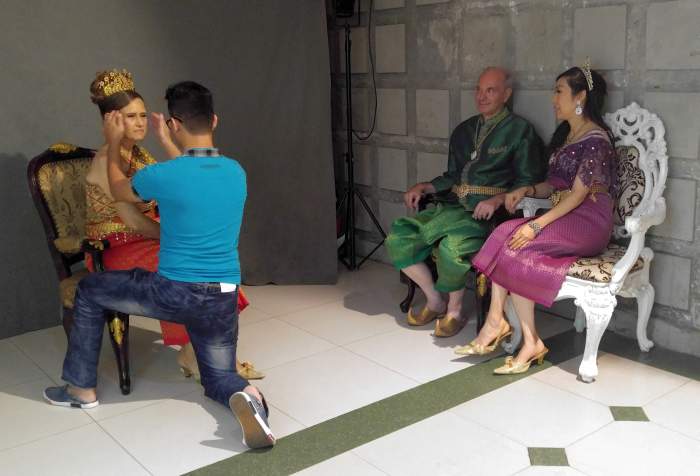Today is the beginning of a two-week trip to a conference in Rome for Catholic deaf youth. I’m starting off with a side trip to the UK to visit some deaf friends there. Click here to catch the beginnings.
Author: Charles Dittmeier
Something New

This is a somewhat new scenario in Phnom Penh. Most people have never seen a moving train in Cambodia. I have been here eighteen years and this is the third time I have seen a train. The tracks from 80 years ago were not maintained and didn’t even reach their destinations. Up until this year, there was one train a day in each direction to Sihanoukville, the port in the south. The 135 miles took 12 hours.
Now there is a push to get the tracks going all the way to Thailand and a month ago, a commuter train was set up to run from the airport every thirty minutes. That is the train above.
They haven’t quite got the hang of it yet. The gates are manually operated and note that the operator is raising the gate as soon as the engine arrives, I guess figuring they don’t need the gate down because no one can drive through the train?
Signs from MARCH FOR OUR LIVES
|
 |
Good on ya, Colin! #2

Colin Allen in 2001-2002 was an advisor for the Maryknoll Deaf Development Programme in Phnom Penh. Now he is president of the World Federation of the Deaf and president of the International Disability Association. Here he is with Ms. A. Muhammed, the Deputy Secretary General of the United Nations.
Signs from MARCH FOR OUR LIVES
|
 |
Signs from MARCH FOR OUR LIVES
|
 |
Good on ya, Colin!
 Colin Allen is the president of the World Federation of the Deaf which represents deaf people to the United Nations. He is a real organizational genius, just the type of advocate leader the deaf community needs–and he was just recognized for his abilities by made a member of the Order of Australia in the most recent Queen’s List.
Colin Allen is the president of the World Federation of the Deaf which represents deaf people to the United Nations. He is a real organizational genius, just the type of advocate leader the deaf community needs–and he was just recognized for his abilities by made a member of the Order of Australia in the most recent Queen’s List.
Coincidentally the guard at our Maryknoll office in Phnom Penh showed up wearing an old Colin Allen shirt! Maybe fifteen years ago we made up some shirts for a birthday party for Colin when he worked at the Deaf Development Programme here–before he got to the big leagues. I doubt the appearance of the shirt at this time was intentional–I have no idea how the guard got it and I’m sure he has no idea who Colin is–but it was a fortuitous alignment of events!
Capturing the Culture

Occasionally, just for a lark, the Maryknoll Lay Missioners group in Cambodia goes for a “glam photo,” all of us westerners dressed up in traditional Khmer costumes. The photo shop crew takes individual shots of each person dressed in the color of his or her choice and then takes several group shots. Here a photographer adjusts Sami Scott’s head to get just the right angle while Russ Brine and Hang Tran wait their turn.
Signs from MARCH FOR OUR LIVES
|
 |
Kentucky to Cambodia #2
These are photos from the last two days of the visit of the Louisville priests to Cambodia. Click here and scroll down to Sunday to see what they did.